Getting sick is something no one wants to experience. Either we have to watch friends and family suffer, while quarantining ourselves to prevent catching it, or we get sick and have to suffer. Sometimes it seems unpredictable whether or not we’ll even catch a cold, while other times it seems almost certain. Then when it happens, there’s the fallout; the misery, the medicine, the lost time at work, the collateral damage.
Thankfully, modern science has a pretty solid grasp of how sickness works and how diseases like the flu transmit themselves from patient to patient. We tend to think of the flu specifically as an airborne disease, but that’s not a truly accurate term. The air of your house when you have the flu isn’t some sort of miasma of doom. Rather, the flu is carried in bodily fluids of the person who is sick. Any time the patient sneezes or coughs, some amount of mucous or spit flies into the air, where it can linger depending on the air circulation and other factors. These same fluids can easily transfer from nose and mouth to hands, and then from hands to surfaces like tables, desks, keyboards, phones, and doorknobs.
When a healthy person breathes in air that includes some small amount of infected fluid, they’re exposed to the disease. When they touch a doorknob, keyboard, or other surface that has been touched by a sick person, those fluids and the flu virus transfers to their hands. Then when they rub their nose or eyes, or touch something they then eat, they’re exposed. From there, it’s up to their immune system and whether or not it can fight off this particular strain of the disease.
So how can you minimize your risk of catching the flu or, if you have it, minimize the chance of spreading it?
1. Get the Flu Vaccine
The flu vaccine is one of the most common and widespread vaccines we encounter as adults. And before you say “I got the vaccine and I still got sick, it doesn’t work!” you need to understand how the vaccine works.
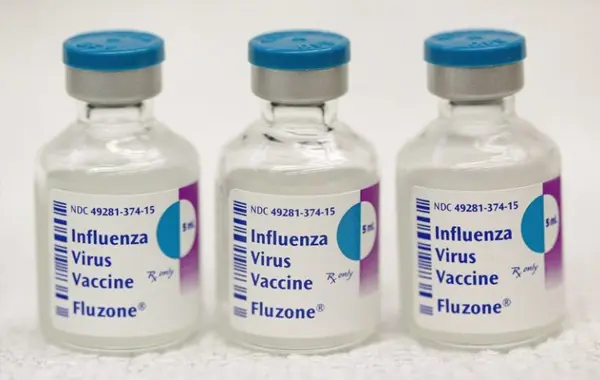
The flu is not actually one disease. There are as many as 144 different subtypes of the flu virus, and they are all constantly mutating due to the effects of external stimuli, including preventative measures. A flu vaccine can be made to protect against one virus subtype, or even a handful of them, but cannot ward off every variation. In fact, every flu vaccine actually includes vaccines for at least three strains, and some cover four. The exact choice of which 3 or 4 are covered is made each year, based on statistics about which strains are most common. If you were vaccinated and still caught the flu, you simply caught a strain that was uncommon for that year.
The CDC has plenty of information about the flu vaccines available, updated each year here. However, you often don’t need to even glance at it; simply go into your nearest Walgreens, CVS, or doctor’s office and ask for the flu shot. It’s cheap, fast, and is the single best step you can take to preventing catching the flu each year.
2. Keep Your Hands Clean
Virtually no one washes their hands as much as they should to keep healthy, and those who do wash often enough often don’t wash long enough. Hand washing ideally should happen pretty much every time you sneeze, cough, touch your face, or touch basically anything. Of course, we’re not going to get up at work to wash our hands every time we type or touch a phone, and washing so often tends to dry out your hands. Hand sanitizer can work, but shouldn’t be relied upon, and only the alcohol-based sanitizers really work. Alcohol also dries and cracks skin, and when your nail beds and knuckles start to crack, you just open your bloodstream up to further possible vectors of disease.

Wash your hands frequently, especially when you’re sick or in contact with someone sick. Always wash in public situations, where other people touch doorknobs and surfaces. Always wash after handling money or anything equally public.
3. Avoid Touching Nose and Mouth
As mentioned above, your face is generally the most major source of spreading disease or catching it. Whether you’re sick and want to avoid spreading it, or healthy and want to avoid catching it, minimizing contact with your face is a great way to assist any other measures you’re taking. The flu virus can only really access your body through such “weak points” in your skin. If you avoid touching them, you avoid exposing yourself and have a much harder time catching a disease.
4. Drink Plenty of Water
Water helps keep your body active. When you’re dehydrated, your body doesn’t have as much resources available to help fight off disease. Additionally, having more water in your body helps keep your nose and throat hydrated, which avoid dryness and cracking, which further opens your body to disease. Hydration is extremely important for energy as well; it helps you wake up, it helps you go about your day, and it helps keep your body operating in peak condition.

You should avoid dehydrating beverages like soda and alcohol. Instead, you can drink juices or even broth to get you water and some nutrients your body can use to help fight disease.
5. Get Plenty of Rest
Like water, when your body lacks sleep, stress starts to build up. Stress makes it harder for your body to fight off disease, both before and after you catch the flu. Now, you aren’t likely to get 12 hours of sleep every day, but you should at least strive for the generally-recommended 8. Go to bed a little early if you have to.
One interesting thing about sickness is how it makes you not want to do the things you should do in order to minimize sickness. Your body needs energy, yet you don’t feel hungry or can’t keep food down. You’re tired, but have a hard time sleeping. You should exercise, but you’re sore and don’t have the energy to move. Try to fight these urges and force yourself to take care of yourself when you’re sick.
6. Stay Home When Sick
When you’re sick, the number one thing you can do to help those around you is stay home from work and from other public places. Call in sick to work, have someone else do your grocery shopping, and generally minimize your exposure to public places.

There are two reasons for this. The first is to avoid spreading disease when you’re sick. Even if you’re washing your hands and covering when you cough, you’re still going to leave the flu virus on surfaces you touch and in the air you breathe. At the same time, your body is already working overtime to fight off the disease you already have. It’s entirely possible, in your compromised state, that you can pick up another strain of the flu or another disease entirely. Stay home, for both your benefit and that of others.
Sometimes staying home isn’t necessarily the best option, because it’s a family member or roommate who is sick themselves. In these cases, you should take steps to minimize the amount of close contact you have with them. This is understandably difficult if you’re the parent of a sick child, for example, but even then you should avoid doing things that can expose you to unnecessary risk. Some ideas might include:
- Spending time outside the home, such as shopping or visiting friends.
- Avoid sharing utensils at meal time.
- Change sleeping arrangements if you sleep in the same bed as the afflicted.
- Avoid sharing wash clothes, towels, and other bathroom items.
- Change sheets and pillowcases to clean your bedding.
Anything you can do to help minimize your exposure to illness is a good idea.
7. Clean Your Home
If someone in your home is sick and you want to avoid catching it, you can also take action to clean your home. Germs love to hide in common cleaning items, like sponges and wash clothes. Run cloth through the wash and either replace your dish sponge or nuke it in the microwave for a minute.
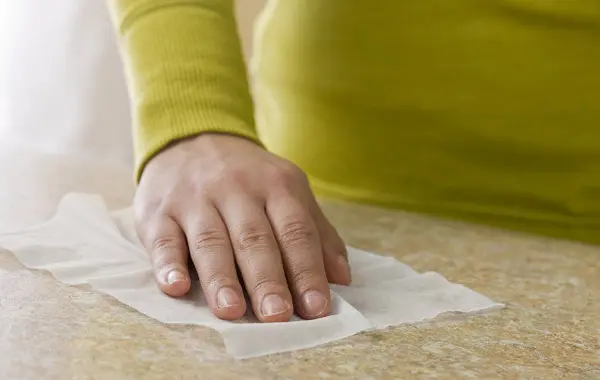
Take a cleaning product to the commonly-touched surfaces in your home. Clean counters, desks, keyboards, doorknobs, sinks, and anything else you find yourself touching. Be thorough when washing items the sick family member uses, including dishes and silverware. Additionally, whenever you handle something the ill family member handled, like clothing or dishes, make sure to wash your hands.
8. Take a Walk
It can be unpleasant, especially in the depths of the winter months, to go outside and get some exercise. However, our bodies need activity just as much as they need nutrition and water if you want to remain healthy. The cold isn’t the cause of the flu, and in fact will hamper its spread somewhat. When you’re out in the cold, you’re also often in reduced contact with people and surfaces, wearing gloves or a mask, and you’re getting fresh air to breath rather than stale air from a potentially hazardous interior location.
You don’t need to hit the gym for exercise every day, nor do you need to run for miles or get a huge workout routine going. All you really need to do is go for a walk, take a breather, and just experience the outdoors.
9. Wear a Mask
With many of the tips above, you’re trying to limit contact with your face and exposure to your nose and mouth. One of the easiest ways to do that is to wear a mask.

A simple face mask can provide a number of benefits, both to help prevent getting sick and to minimize your risk of infecting others if you catch the flu.
- The mask filters your breathing, so you aren’t breathing in flu germs that could take root, and you aren’t breathing them out if you’re already sick.
- The mask forms a physical barrier between your hands and your face. You can still touch your eyes, of course, but the barrier helps remind you that you shouldn’t be touching your face. Have you ever tried to avoid touching your face? As an experiment, simply pay attention and count how often you touch your face in an hour. The answer may surprise you.
- The mask helps retain moisture when you breathe out, so you don’t lose as much to the dry winter air. This isn’t going to turn you into a perfect closed system, but it will slow the effects of dehydration and allow you to do more with less when it comes to water.
10. Cover Coughs and Sneezes
Sometimes you can’t get away with wearing a mask. Maybe it’s considered inappropriate in the workplace and your boss won’t let you wear it. Maybe you need an open mouth to be able to talk effectively on the phone. Maybe you just don’t have access to a good one. In these cases, you should still avoid contact with your hands and face. You should also cover your mouth and nose when you cough or sneeze. Even if you think you’re directing it away from others, bodily fluids still find their way into the air, and they can settle on almost any exposed surface.
You should avoid covering your face with your hands when you sneeze. If you use a tissue or cloth of some kind, dispose of it quickly and wash your hands. If no such item is available, the easiest way to cover your face is to sneeze or cough into the crook of your arm. Your elbow covers most potential spray, and it’s not a part of you that often touches other surfaces.
With luck, you’ll be able to pass this flu season without catching a thing. However, even if you do, you can avoid spreading it with these simple tips.
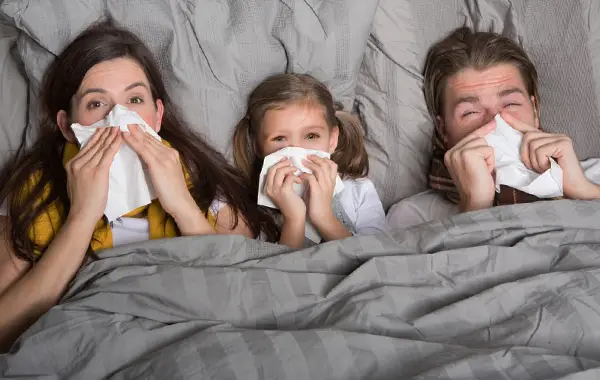

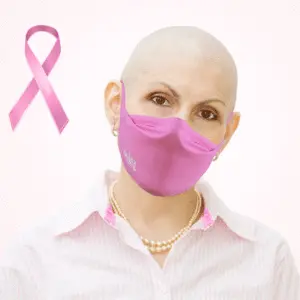
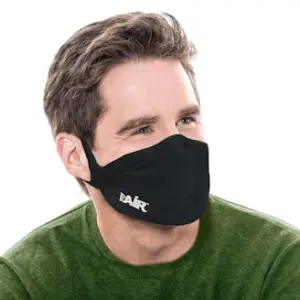
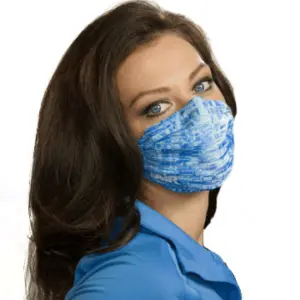

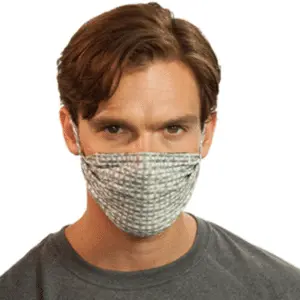


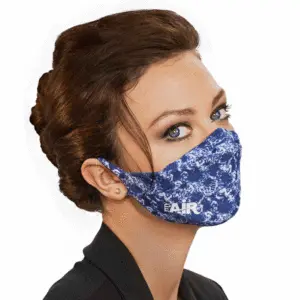

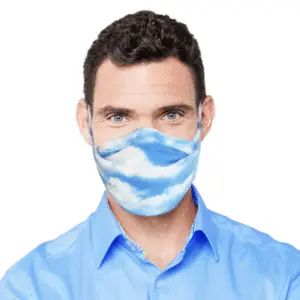

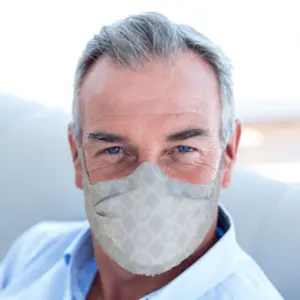

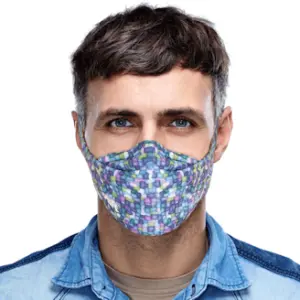

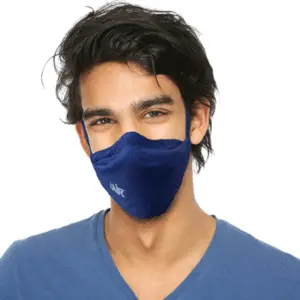
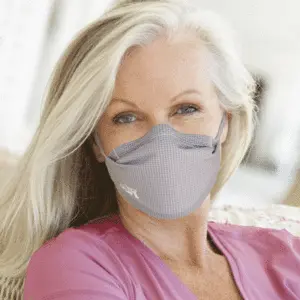

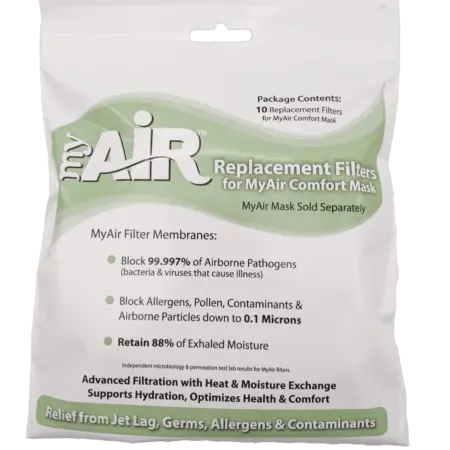
0 Comments